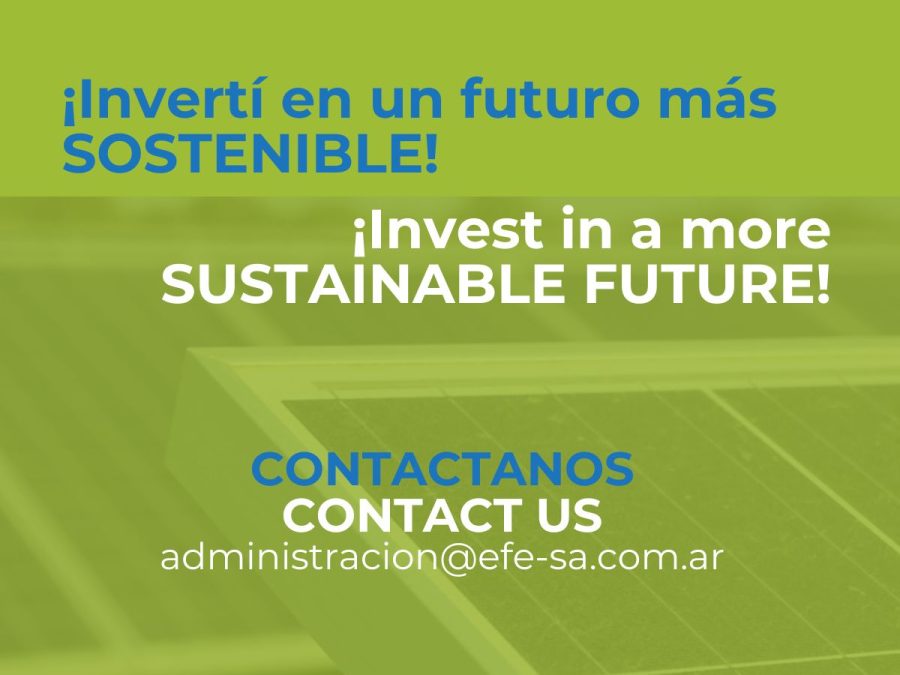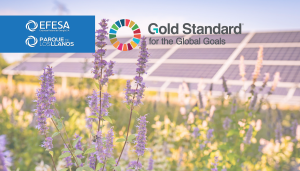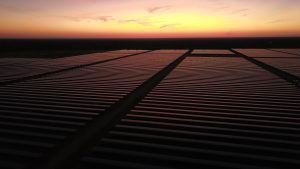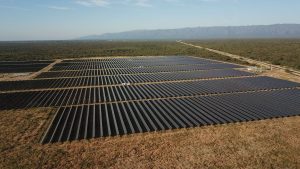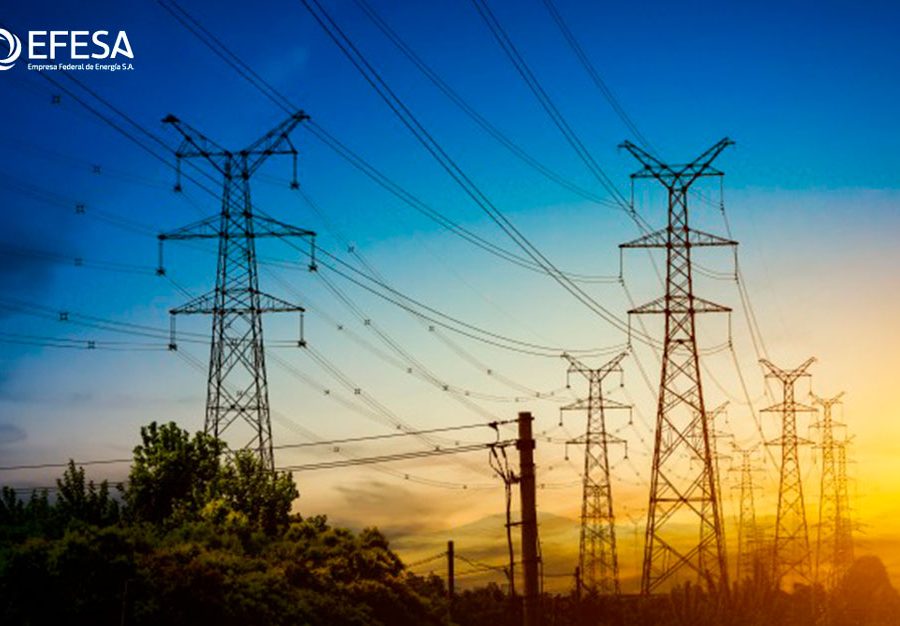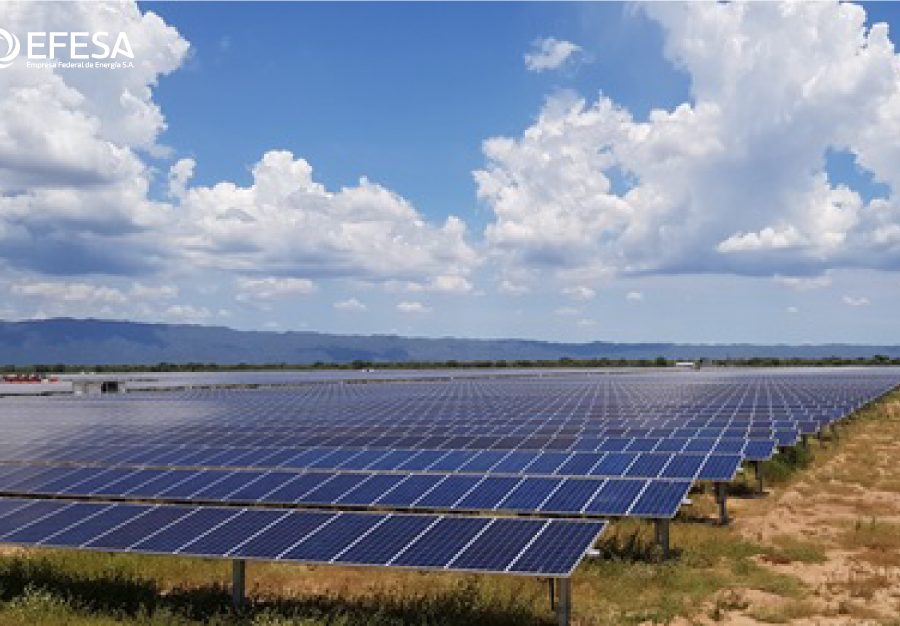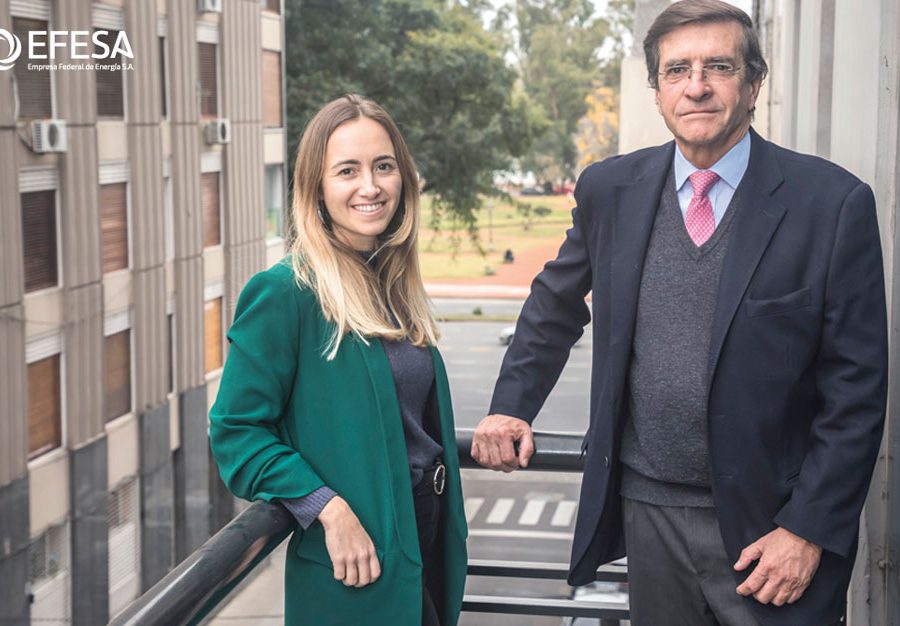“Being part of the Argentine energy matrix generation. Make investments that strengthen and diversify the productive mix of the country, putting faith in long-term sustainable development, providing clean energy in a sustainable form, with high quality, professional and responsible standards.” This is how EFE S.A corporation, which belongs to Inverclub S.A Group and is currently developing Los Llanos Solar Park, located a few kilometers from the town of Chamical, in La Rioja, defines its mission.
The development of projects related to the use of renewable sources for power production is fostered in Argentina through Law 27,191. This law states that big users must incorporate a percentage of renewable energy consumption and, by 2025, it must reach a minimum of twenty percent of the total consumption of electrical energy. In this context, EFE S.A. seeks to contribute to fulfilling the goal set by the national government through the development, building, operation, and maintenance of the photovoltaic solar park. In order to know more about the project, PRESENTE spoke with Francisco Muro, Chairman of EFE S.A, and with Florencia Benedicto, Corporate Manager of Inverclub S.A.
In the first place, why have you decided to invest in renewable energy?
Francisco: On one side, corporations that make up the board of directors are electrical energy consumers, so it was very important for us to go where the world is going: towards renewable energy. Moreover, we commit to Law 27,191, where it is established that a percentage of renewable energy must be purchased. In 2019, the percentage established by law was twelve percent. Nowadays, as the project advances, we are above that percentage, and the idea is to operate one hundred percent in a renewable way.
Investment has two goals: in the first place, the world is moving towards renewable energy and, in the second place, we are big consumers of energy; consequently, an option was to go out and buy other projects or operate in CAMMESA, the joint purchasing market, or in MATER (Renewable Energy Futures Market) that is not regulated and is between private parties. In this context, we decided to make our project and accompany the change by opening a new business unit. As we are consumers, it was also convenient for us to be producers.
What’s the importance of integrating sustainability into investments?
Florencia: In the world, mainly in the most developed countries, corporations talk about the triple impact, and experience shows, especially in their economic results, that these corporations are the ones that are growing, while the ones that do not contemplate environmental impact or the community where they operate in their decisions are being left out.
Once you’ve decided about an investment, what was the next step?
Francisco: First, it was to define the technology, in this case, solar. As we didn’t belong to the energy area, it had to be accessible to implement. As for me, I studied the topic of photovoltaic energy. Although I’m not a specialist, we surround ourselves with people who were specialists and who had already run parks. Having a team that had been in the field and that had known the problems and challenges was very important to us. It was essential at the time of choosing the team that accompanied us.
Another item to analyze is an investment. A wind farm requires more land and more initial investment. It then generates more production but we first started being cautious, that’s why we headed towards the solar area and created a scalable project: we started with 12 MW; now we have 8 MW under construction and we’re going to include 10 MW more next year, reaching a total of 30 MW.
Once the technology is defined, the ability of transportation of the cables to connect to the network is evaluated. For example, in the southern region of the country, the main lines are being highly demanded by wind farms. However, it’s sunny in the North and there is more capable of transportation, as projects are smaller.
This type of project must have a great impact on the community…
Francisco: Yes, we are currently employing an engineer, three technicians, and security staff that are from the area. The engineer who is with us was from Chamical, and thanks to the project, he could go back to his town and work from there.
The bond with the community was also important, they offered us access to water if we built the line and took it to two schools from the area that didn’t have it. Therefore, we took the water line, which was 12 km from it, and the schools could get access to it.
You’ve already complied with the percentage required by the law. Which is your current generation percentage?
Florencia: Our clients are Palermo racecourse and the whole Rosario’s casino complex. In the case of the racecourse, it’s 18 percent in this period where production is low, but it can reach 25 in the summer. In the case of the casino, it’s 38 percent and can reach more than 40. The law states that 20 must be reached by 2025, but we will have achieved it by the end of the year. By 2020, when the 30 MW are installed, we will make both the racecourse and the casino one hundred percent renewable, and we will also be able to offer energy to other clients.
What are the plans for the future?
Florencia: Now – apart from solar energy – we started working on additional sub-products. In this line, we are working to enter the carbon credit voluntary marketplace and we will move forward with its issuance. In this market, you can issue carbon credit. Instead of being sold in the official market, it is offered to corporations interested in reducing their carbon footprint or seeking to reach zero emissions. That is to say, if they emit a certain amount of greenhouse gases, they’ll try to be on a level with zero emissions by buying credit, but these corporations are not compelled to do so. They seek this credit because of a strategic and voluntary decision. At the same time, we’ve started the process of certifying as a B corporation. We’ve already modified the by-laws undertaking the commitment and we hope to continue on this path when we advance in the billing.
Thanks for reading!
If you want to know the latest news about EFESA, please follow us on LinkedIn Instagram or Facebook

